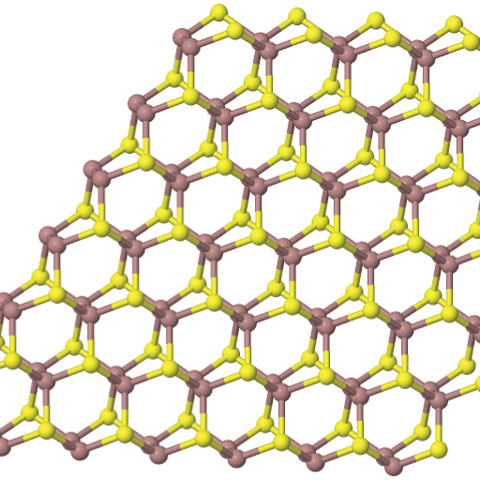Development of novel 2D materials boosted by High Performance Computing Centre
04/10/2013 00:00:00

Lancaster University's Department of Physics has long been at the forefront of theoretical research in 2D materials such as graphene.
Thought to be the strongest material ever produced and the best conductor of electricity ever, graphene is one of a host of 2D materials which promise to transform our world over the coming decades.
Dr Neil Drummond from Lancaster University’s Department of Physics is using quantum methods to study the remarkable and extreme properties of 2D materials.
This research requires enormous computing power which is greatly enhanced by the new High Performance Computing Centre, funded by the EPSRC.
Dr Drummond said: “The experimental study of many of these materials is in its infancy; indeed in some cases the materials have not yet been synthesised.
“Accurate first-principles computational studies play an important role in establishing the structural and electronic properties of novel 2D materials. This is the first step towards the eventual application of these materials in electronic and optoelectronic devices.”
The Centre brings together the best academic expertise in the N8 Research Partnership including the Universities of Durham, Lancaster, Leeds, Liverpool, Manchester, Newcastle, Sheffield and York. Based at the University of Leeds, it is run jointly with the University of Manchester to provide enhanced computing power for research.
Professor David Delpy, EPSRC’s Chief Executive, said: “Having access to high performance computing facilities is becoming increasingly essential to many branches of science, to investigate new theories and model more complex problems in greater detail. Collaborations such as the N8 Research Partnership can provide these vital tools and help UK institutions build on their existing strengths.”